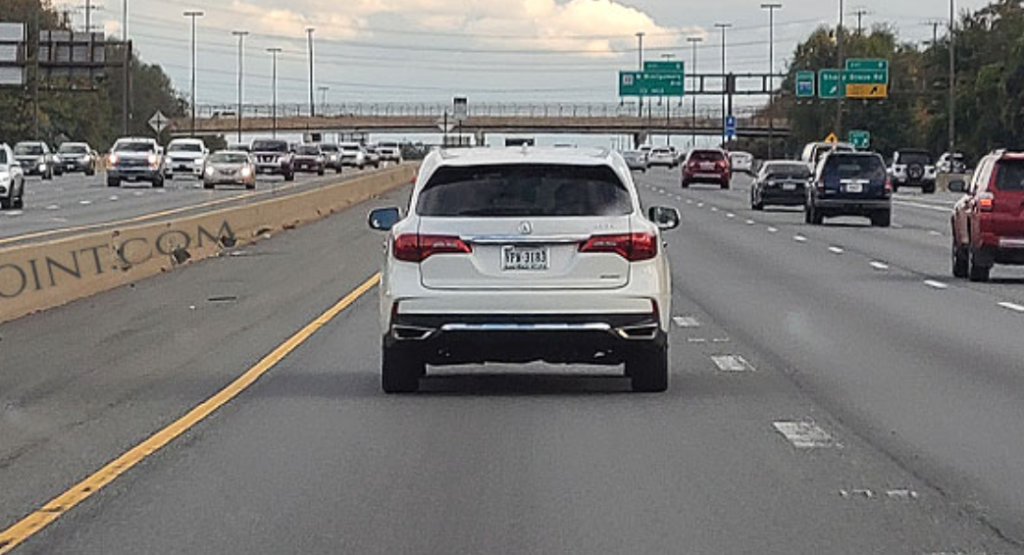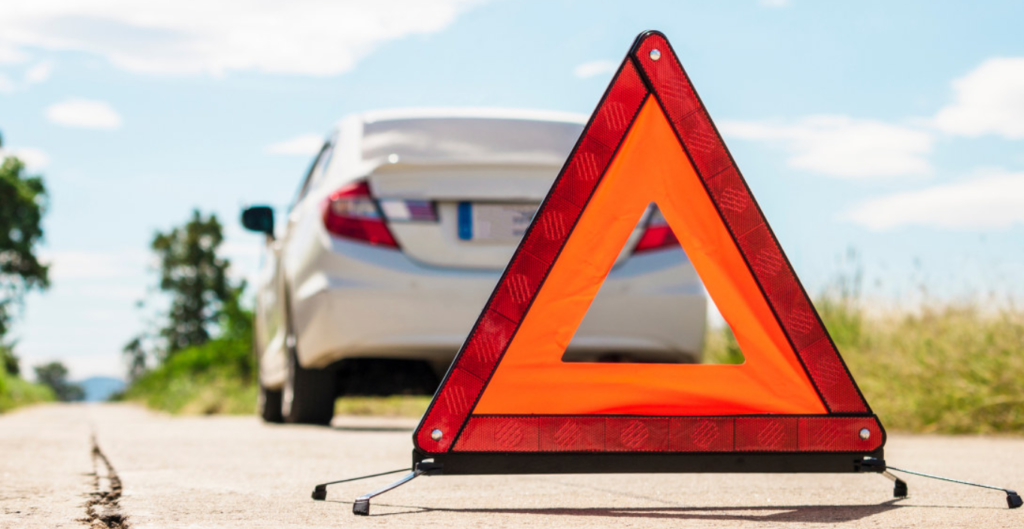Car owners are quite familiar with the wide range of sounds their vehicle can make. One of the most common yet concerning noises is when a car makes humming noise at 30mph. This noise, although seemingly harmless, can point to several underlying issues that might need urgent attention. In this guide, we will discuss the causes, fixes, and safety tips for when your car makes humming noise at 30mph.

The Science Behind Car Humming
Understanding why your car makes a humming noise at 30mph requires a look at the science behind it.
How Speed Relates to Car Humming
As you increase your speed, the wheels spin faster, the engine works harder, and more air flows over the vehicle’s body. When you notice that your car makes humming noise at 30mph but not at other speeds, it might be due to these specific conditions accentuating the noise of a malfunctioning component.
Aerodynamics and Noise Generation
Aerodynamic noise is generated due to the flow of air around your vehicle, and it intensifies with speed. However, when your car makes humming noise at 30mph, it’s less likely to be aerodynamics and more likely a mechanical issue.
Role of Tires and Suspension
Tires and suspension components play a pivotal role in noise generation. Uneven tire wear, unbalanced wheels, or a compromised suspension can make your car hum noticeably around 30mph.
Common Causes of Humming at 30mph
Worn-Out Wheel Bearings: When your car makes a humming noise at 30mph, the most common culprit is worn-out wheel bearings. These components allow the wheels to rotate smoothly, and wear can lead to a humming noise at certain speeds.
Uneven Tire Wear: If your car tires are unevenly worn, the car makes humming noise at 30mph due to the uneven contact with the road surface.
Alignment Issues: Incorrect wheel alignment can cause excessive tire wear and potentially result in your car making a humming noise at 30mph.
Faulty Brake Components: A humming noise at this speed can also be a result of worn-out brake components, particularly if the noise intensifies during braking.
Diagnosing the Humming Noise
Identifying the Sound Source
By driving at 30mph on a quiet road, you can better locate where the humming noise originates. If your car makes a humming noise at 30mph predominantly from one side, the issue may be with a wheel bearing or a tire on that side.
Testing for Wheel Bearing Problems
Wheel bearing problems can be confirmed by jacking up the car and checking for play in the wheels, or a rough feeling when spinning them. This method helps if your car makes humming noise at 30mph, suggesting a bearing issue.
Checking the Brakes and Suspension
Examining brake components for wear and ensuring the suspension system is in good condition is crucial to address the humming noise.
DIY Fixes for Car Humming
Replacing Wheel Bearings
If worn-out wheel bearings are why your car makes humming noise at 30mph, replacement is necessary. It’s a technical process that requires mechanical know-how and tools.
Tire Rotation and Balancing
For issues related to uneven tire wear, rotation and balancing should mitigate the humming noise at 30mph.
Brake Inspection and Maintenance
Checking brake components for wear and replacing faulty parts can reduce or eliminate the humming noise at certain speeds.
Professional Repairs and Maintenance
When to Seek Professional Help
Despite your best efforts, if your car makes humming noise at 30mph, it’s time to seek professional help. This is especially important if the noise increases in intensity, or if it’s accompanied by vibrations, steering issues, or other abnormal symptoms.
Finding a Trustworthy Mechanic
A reliable mechanic is an invaluable asset when your car makes a humming noise at 30mph. Look for highly-rated mechanics in your area, seek recommendations, and compare reviews and prices before making your decision.
Essential Car Maintenance for Noise Prevention
Routine maintenance checks including oil changes, tire rotations, brake inspections, and suspension checks can significantly reduce the chances of your car humming at 30mph.
Preventive Measures to Minimize Humming
Regular Tire Inspection and Maintenance
Regularly inspecting your tires for wear, damage, and maintaining the right tire pressure can prevent your car from making a humming noise at 30mph.
Importance of Wheel Alignment
Keeping your wheels aligned reduces uneven tire wear, increases fuel efficiency, and helps prevent that humming noise at around 30mph.
Ensuring Proper Brake Health
Maintaining your brakes, including the pads, rotors, and calipers, is crucial. Worn brake components can contribute to the humming noise at 30mph.
Reducing Road Noise in the Cabin
Soundproofing Techniques
Investing in quality soundproofing materials for the doors, floor, roof, and wheel wells can significantly reduce the intrusion of road noise into the cabin, even when your car makes humming noise at 30mph.
Quality of Tires and Their Impact
High-quality tires typically produce less road noise, and they can be an excellent investment for reducing that humming noise when driving at 30mph.
Suspension Upgrades for Noise Reduction
Upgraded suspension components not only improve ride comfort but also reduce noise transmission, thus minimizing the humming noise at 30mph.
Safety Concerns and Driving Tips
Determining if the Humming is Dangerous
It’s important to distinguish between a minor nuisance and a safety issue. If your car makes humming noise at 30mph but performs normally otherwise, it’s likely not a major concern. However, if there are other symptoms like vibrations, pulling, or loss of control, it could be dangerous.
Safety Precautions While Driving
Always maintain a safe speed, stay alert, and ensure your car is in good shape before setting off, especially if you notice a humming noise at 30mph.
Handling Emergency Situations
In case the humming noise suddenly increases or if there’s a noticeable change in vehicle behavior, safely pull over and call for roadside assistance.

Impact on Vehicle Performance and Fuel Efficiency
Effects on Handling and Stability
When your car makes a humming noise at 30mph, it could potentially affect the vehicle’s handling and stability. This can be due to issues like worn-out wheel bearings, improper wheel alignment, or damaged suspension components, which can affect steering responsiveness and ride comfort.
Relationship Between Noise and Fuel Efficiency
Although the humming noise at 30mph itself may not directly affect fuel efficiency, the underlying causes, such as misaligned wheels or underinflated tires, can increase rolling resistance and thus reduce fuel economy.
Maintaining Optimal Performance
Routine maintenance can ensure optimal performance, fuel efficiency, and noise reduction. Regular oil changes, tire rotations, and checking of the braking and suspension systems can prevent the humming noise at 30mph and keep your vehicle at its peak.
Car Humming Noise: Myths vs. Facts
Busting Common Misconceptions
One common myth is that if your car makes humming noise at 30mph, it’s always a serious problem. While it shouldn’t be ignored, the cause is not always severe and could be as simple as needing a tire rotation or wheel alignment.
Separating Fact from Fiction
Many believe that the humming noise is only linked to the engine, but it can originate from multiple sources including the wheels, brakes, or even the drivetrain. Identifying the source is critical for appropriate treatment.
Addressing Humming in Different Car Models
Model-Specific Humming Issues
Certain vehicle models may be more prone to specific issues causing the humming noise at 30mph due to design or manufacturing differences. Consult the vehicle’s manual or forums specific to your model for detailed information.
Solutions and Tips for Each Model
The solution to the humming noise at 30mph might vary by model. For instance, some models may require specific tire types or suspension adjustments. Seeking advice from a mechanic who specializes in your particular model can be beneficial.
Environmental Impact of Car Humming
Noise Pollution and Its Consequences
The humming noise at 30mph might contribute to overall noise pollution, particularly in urban areas, potentially affecting the well-being of humans and wildlife alike.
Eco-Friendly Driving Practices
Adopting eco-friendly practices, like regular vehicle maintenance and gentle acceleration, can reduce both the humming noise and the vehicle’s environmental impact.
Long-Term Maintenance for Noise Prevention
Creating a Maintenance Schedule
Creating and adhering to a maintenance schedule is a proactive approach to preventing your car from making a humming noise at 30mph. Regular tire rotations, oil changes, and brake checks can keep your car humming-free.
Staying Proactive with Regular Checkups
By having regular checkups, you can catch minor issues before they become significant problems, like a persistent humming noise at 30mph.
Enhancing Comfort and Enjoyment While Driving
Tips for a Quieter and Smoother Ride
To achieve a quieter and smoother ride, maintain your tires and suspension, consider soundproofing the cabin, and promptly address any unusual noises, like the humming noise at 30mph.
Making Your Commutes Pleasant
A peaceful commute can make a world of difference to your day. Removing the irritating humming noise at 30mph can transform your driving experience, making it more enjoyable and stress-free.
Addressing Humming in Electric Vehicles
Unique Considerations for EV Owners
Electric vehicles may present unique sources of noise due to their distinct powertrain designs. However, similar maintenance principles apply, and regular checkups can prevent your EV from making a humming noise at 30mph.
Noise Generation and Electric Powertrains
While electric powertrains are typically quieter than combustion engines, they can still generate noise due to mechanical or electrical issues. Understanding these differences is critical for proper diagnosis and treatment.
Common Misdiagnoses and How to Avoid Them
Identifying Similar Noises
Similar noises to the humming noise at 30mph can come from various sources. It’s essential to identify whether the noise is a hum, a roar, a whine, or a squeal, as each may point to a different problem.
Thorough Inspection for Accuracy
A thorough inspection by a professional mechanic can help avoid misdiagnoses and ensure that the real cause of the humming noise at 30mph is addressed.
Summary: Silence the Humming for Good
The humming noise at 30mph can stem from numerous sources, including tires, brakes, or wheel bearings. It’s crucial to not ignore this noise and carry out regular vehicle maintenance to prevent and address the issue.
Importance of Timely Action
Addressing the humming noise at 30mph promptly can prevent potential major damages, improve your driving experience, and promote overall vehicle longevity and performance. Always remember, delaying can turn a minor issue into a major, costly repair.
Frequently Asked Questions (FAQs)
Is Car Humming at 30mph Dangerous?
While not immediately dangerous, if your car makes humming noise at 30mph, it could be indicative of an issue that needs addressing to prevent future damage or risk.
Can I Ignore the Humming Noise?
Ignoring the humming noise your car makes at 30mph isn’t advisable. Over time, the underlying issue could worsen, leading to costlier repairs or even dangerous driving conditions.
How Much Does Wheel Bearing Replacement Cost?
Costs for replacing wheel bearings vary, typically ranging from $150 to $600 per wheel.
Should I Drive My Car if It’s Humming?
If your car makes humming noise at 30mph but drives fine otherwise, you can likely continue driving short distances, but should seek a mechanic’s advice promptly.
How Often Should I Rotate My Tires?
Tire rotation is generally recommended every 5,000 to 7,500 miles to ensure even tire wear and prevent your car from humming at 30mph.
Conclusion
In conclusion, if your car makes humming noise at 30mph, it should not be overlooked. Understanding the possible causes, making timely fixes, and implementing preventive measures can not only help you deal with the noise but also extend the lifespan of your vehicle. Now you’re empowered with the knowledge to make your drive quieter and safer. Remember, when in doubt, it’s best to consult a professional. Don’t let the hum drown out the joy of your journey.